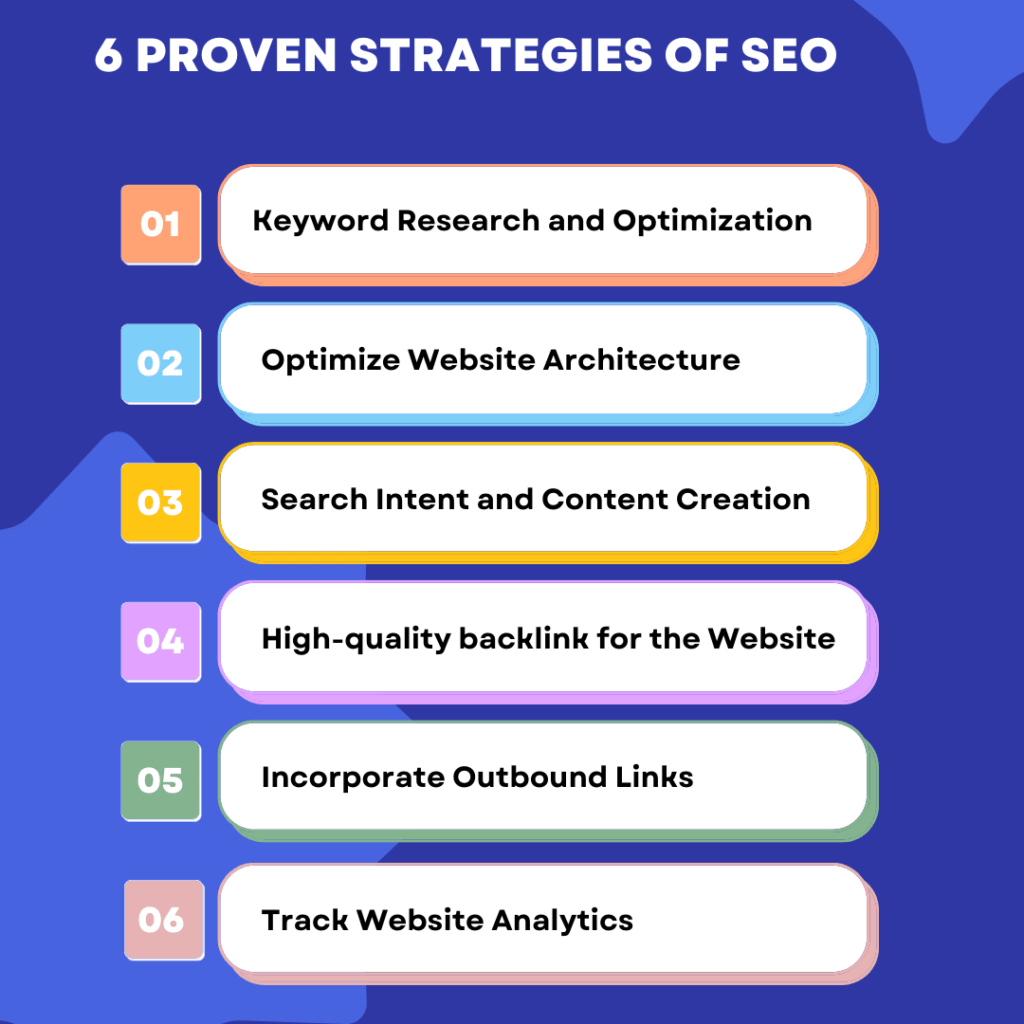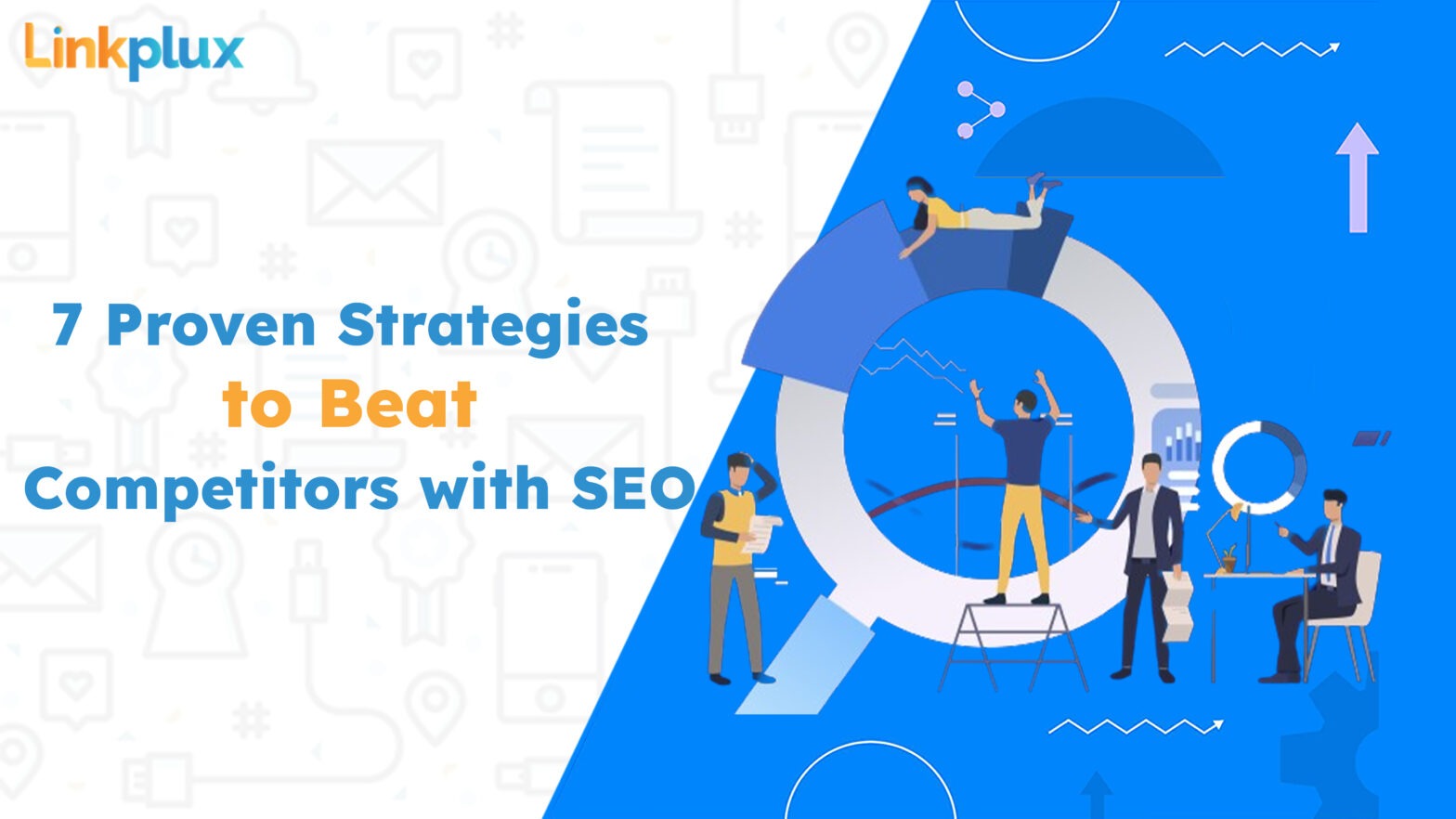Imagine you’re planning a beach vacation and you want to find the best destination. You might start by searching online for terms like “top beach destinations” or “best beach vacations.” When aiming to beat competitors, the focus often shifts to surpassing them in revenue, client numbers, or units sold. However, to achieve comprehensive superiority in business, mastering SEO is essential for surpassing competitors. The top results are influenced by search intent and the effective use of search engine optimization (SEO). Understanding what users are looking for and optimizing content accordingly helps websites secure top positions in search results, whether it’s about finding the perfect pizza or planning a memorable family beach getaway. In this article, we’ll explore some tried-and-tested methods to outperform competitors using SEO, which can boost your Website’s ranking. Get ready to discover the secrets of search engines and transform your online presence!
The Role of SEO
As the world changes rapidly, so do technologies and methodologies. Understanding and adapting to Google’s algorithms is essential for businesses to improve brand visibility and attract online searchers. SEO has evolved significantly over the last two decades. Reports indicate that by 2024, around 70% of businesses will need to undergo some form of digital transformation. Therefore, leveraging search engine optimization (SEO) and staying updated with digital transformation trends are crucial for success. This approach can organically allow more of your target audience to discover your business online, helping you expand your reach and increase revenue. It involves using various techniques to enhance your Website, making it easier for search engines and consumers to understand. Here, follows a different SEO strategy to start a SEO journey .

1. Keyword Research and Optimization
Keyword research involves discovering the terms users search for related to your business, services, and products. By using these terms in your content, you can better align with user searches, which is crucial for meeting their needs.
After identifying your target keywords, optimizing them is essential for improving your Website’s visibility in search engine results pages (SERPs) and attracting more relevant traffic. It’s vital to optimize various elements of your landing pages, such as meta titles, descriptions, headers, and copy, with these keywords. This optimization helps Google understand your products or services and connect them with relevant search queries.
By prioritizing keywords relevant to your business, you can enhance your Website’s visibility and attract more relevant traffic. This SEO strategy helps your Website rank higher in search results and reach more potential customers.
2. Optimize Website Architecture
Website architecture is a fundamental aspect of technical SEO, where instead of having random pages and posts, you create a structure that guides users to your content and helps Google index it efficiently. It’s like organizing a library, where categories, sections, and links make it easy for visitors to find what they want.
Your Website’s architecture involves organizing, categorizing, and linking content. This structure is crucial for both user experience and search engine optimization. You demonstrate expertise in your field by grouping related pages into topic clusters. For example, if you have multiple articles covering different aspects of a topic, linking them together helps search engines understand your authority on that subject.
An SEO-friendly site structure is like building a roadmap for users and search engines. It helps users navigate your site quickly and encourages them to explore more content. At the same time, it tells search engines what your site is about and increases the chances of ranking higher in search results.
3. Search Intent and Content Creation.
Search intent is the main reason users search for something online. It’s what they want to achieve with their search. Understanding search intent is vital for creating compelling content. There are four main types:
As marketers, we need to know where our customers are in their search journey and which content or page to target. Search intent is crucial for optimizing landing pages and creating content that meets users’ needs.
Crafting a Content Plan Aligned with User Search Intent
Creating valuable content is crucial but only worthwhile if it matches users’ searches. Before crafting content, we must research keywords and competitors to ensure alignment with user intent. This helps us determine if we can rank on Page 1 and discover related keywords to include. Focusing on relevant keywords increases our chances of attracting qualified traffic and achieving our goals effectively.
4 . A high-quality backlink for the Website
Backlinks, also known as incoming links, are like votes of confidence from one Website to another. They’re crucial for ranking higher in search results, as each backlink tells search engines that your content is valuable and credible.
Discovering High-Quality Backlinks:
One high-quality backlink is more potent than many low-quality ones. Getting backlinks related to your content from reputable sites is essential, as this boosts your site’s authority and helps it rank better on Google and other search engines.
5. Incorporate Outbound Links
One way to improve your Website’s credibility is by using outbound links. Unlike internal links that connect pages within your site, outbound links direct users to other websites. These links provide additional information and resources that complement your content.
Outbound links act like votes of trust, sharing some of your site’s authority with the linked Website. Linking to high-quality pages can improve your search engine ranking. You enhance your page’s value and keyword ranking by offering valuable resources.
External links demonstrate to search engines that you reference valuable resources and can be trusted by users. This builds trust with your audience and helps your Website rank higher. Additionally, external links can attract more backlinks from others when you use them for statistics or support opinions. Integrating outbound links improves your Website’s credibility, enhances user experience, and boosts search engine ranking.
6. Integrate Other Media
To make more people aware of their brand and get better visitors to their websites, marketers should focus on search engine optimization (SEO).
Social media indirectly boost search visibility and rankings through things like likes, shares, and comments. These actions build trust and brand loyalty, indirectly improving online visibility and traffic – things search engines like when evaluating a brand’s online reputation and deciding how to rank it in search results.
Even though social media doesn’t directly affect search rankings, it influences SEO by driving good website traffic, especially content like blogs and campaign pages. When a brand creates excellent content that resonates with its target audience, people can become fans. These fans engage with and share the content, leading to more people finding and enjoying it. This cycle continues as more followers discover, engage with, and share the content. SEO strategy and social media help brands reach more people, build a positive online presence, and improve search engine rankings.
7. Track Website Analytics
Web analytics is like keeping tabs on your Website’s performance and how users interact. It involves using tools to gather and organize data about where your Website visitors come from and what they do on your site.
By tracking metrics like how long users stay on your site, which links bring them there, and how well your site performs, you can see how your Website is doing in the eyes of search engine algorithms.
Important metrics
Understanding these metrics helps you make informed decisions to improve your Website’s performance and rank better in search results. It’s like having a dashboard that shows you what’s working and what needs fixing so you can make your Website the best it can be.
Final Thoughts
In conclusion, mastering the art of SEO strategy is crucial for staying ahead of competitors in 2024. By implementing proven strategies such as keyword research, optimizing website structure and content, building high-quality backlinks, and leveraging outbound links and other media, businesses can enhance their online presence and attract more organic traffic. Additionally, monitoring analytics and adapting strategies accordingly ensures continuous improvement and adaptability in the ever-evolving digital landscape. By prioritizing SEO efforts and staying informed about industry trends, businesses can effectively beat competitors and achieve sustained success in the competitive online marketplace.
FAQ’s
How important is content in SEO?
Content is a crucial aspect of SEO. High-quality, relevant, and engaging content not only helps improve search engine rankings but also attracts and retains visitors to your website. Content serves as the foundation for targeting keywords, earning backlinks, and establishing authority in your niche.
How can I measure the success of my SEO efforts?
What role do keywords play in SEO, and how should they be chosen?
Keywords are essential as they help search engines understand your content. Choose relevant keywords based on your business, target audience, and search volume. Use tools like Google Keyword Planner to identify and prioritize keywords.
How important is content in SEO, and what makes content ‘SEO-friendly’?
Content is crucial for SEO. ‘SEO-friendly’ content is high-quality, relevant, and provides value to users. It should incorporate targeted keywords naturally, have a proper structure, and encourage user engagement. Regularly updating content also signals freshness to search engines.
What is the significance of backlinks in SEO, and how can they be obtained?
Backlinks are vital for SEO as they indicate credibility and authority. Focus on earning high-quality, relevant backlinks through methods like guest posting, influencer outreach, and creating shareable content. Avoid spammy practices, as search engines penalize low-quality links.

